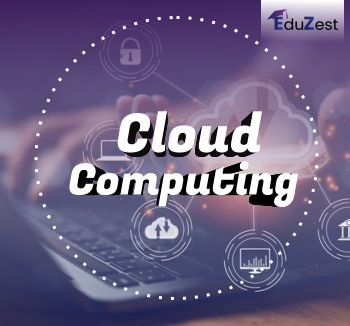Compare & Select from 100+ Best University for your Online MBA Course
.jpg)









_Logo_210x70.png)





.jpg)

Introduction Our Course
Cloud computing
In Cloud Computing, when the internet provides services like data storage, servers, databases, networking, and software instead of your computer’s hard drive. Cloud computing has opened many job scopes/opportunities for years in the sector of information technology. So, if you are worried about your career, you can go for this. For this field, if you are looking for eligibility for cloud computing, you just need 10+2 with graduation in the science stream. To get admitted to any university/college, you can appear in the entrance exams like JEE Main, JEE Advanced, SRMJEEE, MHT CET, IPU CET, and VITEEE. Under cloud computing, you will learn about Cloud Security, Machine Learning and AI, Technical Skills Required for Cloud Computing, Database Skills, and many more.
Universities
27
Duration
2 Years
Eligibility
Graduation
What is Cloud computing?
Under cloud computing, you need to understand that this is a type of technology where the internet stores and accesses or manages the data and programs of computers. When usually storing data, this will be stored in a hard disk (this is the type of storage device) but in the case of cloud computing, You can store your data in the cloud.
What is Clouds?
We Usually clouds, Badal, or Megh in Hindi. They are usually filled with water and present in the sky. Similarly, in terms of computers, these clouds are filled with data/digital data. These clouds are present in the big computers which are called servers.
For example- If you are using your social media like Facebook, and see your photos/images/files daily, these are usually stored in clouds.
Highlights of Cloud computing:
|
Course Name |
Cloud Computing Courses |
|
Course types |
Diploma, certificate, Masters, bachelors |
|
Course Duration |
|
|
Course fee |
INR 15,340- 16,000 |
|
Job profile |
Cloud Architect, Cloud Engineer, Cloud Consultant, Senior Software Architect |
|
Average salary |
INR 44L-45L |
What skills are required for Cloud computing?
To get a successful career in the field of cloud computing, you must learn these skills to build your career.
|
Skills Required for Cloud Computing |
|
What are the types of Cloud Computing?
Under the types, you will learn about the three main types which are public cloud, private cloud, and hybrid cloud. Let us discuss this further in detail-
Public Cloud:
- In simpler words, here you get cloud services on the internet or you can say public clouding is handled or managed by Amazon, Microsoft, and Google.
- This can be used by anyone with the help of the internet.
- In public clouding, you must pay whenever you serve on the internet, this works on the principle of pay-per-use.
- This is less cost clouding because, in less cost, more than one person can use this.
- Examples of public clouding are Microsoft, Google App Engine, Windows, IBM SmartCloud Enterprise, etc.
Private Cloud:
- This is called the internal or corporate cloud. Here, you can work with private infrastructure and this can be used by private companies to access or manage the data.
- This can be divided into two categories- On-premise Private Cloud and outsourced private cloud.
- Examples of private clouds are Amazon VPC, HPE, VMware, and IBM.
Hybrid Cloud:
- In simpler form, this is the combination of private and public clouds in which you can get both specialties.
- This is best for those companies/organizations, who want more security.
- This is better than public clouds but not more than private clouds.
- Examples of hybrid clouds are Gmail, Google Drive, Google Apps, and MS Office.
Advantages of Cloud Computing:
There are many benefits/advantages, you can check from here-
- In cloud computing, you can share your information easily.
- In cloud computing, you can easily back up and store your data.
- This is a low-cost use of software and hardware in cloud computing.
- In this, you can access the store information with the use of user internet globally.
- You can store the documents, images, and audio with more space.
- Cloud computing uses Firewall (a network security device) for the security of the data.
Services of Cloud Computing:
This can have a 4 services, which are mentioned below-
IaaS:
- The full form of IaaS is infrastructure as a service which is a service model.
- In IaaS, you can get hardware, networking, or storage services.
- This is commonly known as the Haas in which the user has to pay as much money as he uses it.
- If you have installed the software application and operating system, then you must update all.
- Examples are Google Compute Engine, Microsoft Azure, etc.
PaaS
- The full form of PaaS is a Platform as a Service in which you can easily make, manage, and deliver software applications.
- This is the mediator of the SaaS and IaaS.
- This is used for making custom applications by web developers where you don’t need to store, serve, or manage it.
- Examples are the Google app engine, amazon web services, etc.
SaaS
- The full form of SaaS is Software as a Service where it is used for the distribution of the applications and services.
- There is no need to install, maintain, or run any software application because there is already a facility that is directly run from a web browser.
- It has provided both the facilities like IaaS and PaaS.
FaaS
- The full form of FaaS is Functions as a Service where it provides the platform where developers can make/design an application on the internet.
- It helps in developing, calculating, and executing codes and also permits the users to develop and update the code without maintaining the infrastructure.
What is the duration of the Cloud Computing?
The duration of the cloud computing varies as per courses, it is up to you which course you prefer in cloud computing-
|
Cloud computing course |
Duration |
|
M.Tech./B.Sc. in cloud computing |
3-years |
|
M.Sc in cloud computing |
2-years |
What about eligibility for a Cloud computing course?
The eligibility criteria for cloud computing may vary from university to university, this can vary as per the minimum marks as well, it is up to you which course you prefer in cloud computing.
|
Cloud computing course |
Eligibility criteria |
|
For Undergraduate (UG) courses |
|
|
For Postgraduate (PG) courses |
|
What about the Subjects/syllabus of Cloud computing?
If you are looking for the syllabus/subjects, you will learn about Cybersecurity, Programming languages, Databases, and many more topics. here, you can learn about these topics, you can see from here-
- Visualization
- Data structure and management
- Cloud computing fundamentals
- Service models like IaaS, PaaS, SaaS
- Cloud security and privacy
|
Cloud Fundamentals |
AWS Expert |
|
Topics Covered:
|
Topics Covered:
|
|
Multi-Cloud Expert (AWS and Azure) |
Azure Expert |
|
Topics Covered:
|
Topics Covered:
|
Popular Entrance Exams for Cloud Computing Courses:
In cloud computing, some universities offer merit/entrance exams to get admitted students for special certifications, but some UG, and PG courses are available in some colleges-
|
Popular Entrance Exams for Cloud Computing Courses |
|
What about the Admission Process for the Cloud Computing Course?
In some universities can be based on merit or entrance basis. For the general admission procedure of the Cloud Computing course, you can follow these steps:
Step 1: As per your course and university/college, you can apply online application form by visiting the official website of the university/college.
Step 2: You can upload your scanned required documents as per university/college.
Step 3: The admission staff would evaluate submitted application forms and then shortlist candidates for the interview.
Step 4: if you are selected, you will informed by your university about the further processes.
Step 5: After getting admission, you have to submit fees as per the university and complete further processes.
Required documents for Cloud Computing Course:
Before or after the process of the application process, universities/colleges usually ask for the documents, you just need to make sure, the documents you are submitting are valid:
- All official mark sheets and certificates
- Passport size photo
- Visa (If we are going to do the course outside India.)
- Resume
- English proficiency test scores and certificates (IELTS, TOEFL)
- Letter of recommendation
- Statement of purpose
Top Colleges for Cloud Computing Course:
Here, we are mentioning some colleges and their fees which are given below-
|
Colleges for Cloud Computing |
Average fees (In INR) |
|
D.Y Patil International University, Pune |
₹3 L - 8 L |
|
Bennett University, Greater Noida |
₹5.4 L - 14.8 L |
|
NIIT University (Neemrana, Rajasthan) |
₹13 L |
|
Chandigarh University, Punjab |
₹2.26 L - 13.65 L |
|
UPES School of Computer Science, Dehradun |
₹10.98 L |
|
Alliance College of Engineering and Design, Alliance University (Bangalore) |
₹12 L - 14 L |
Some top universities abroad:
|
Some top universities abroad |
|
What is the Future Scope of the Cloud Computing Course?
We are seeing that in the era of the internet and technology, India has developed digitally. In that way, some companies have demanded candidates who are at least skilled and knowledgeable in the field of cloud computing where you can achieve career growth as well as the other facilities like high salary packages. as per these companies, you can gain the experiences by working with them.
A career in Cloud computing offers plenty of opportunities which are mentioned here:
|
Job |
Salary (In INR) |
|
Cloud Computing Engineer |
₹ 7.1 Lakhs |
|
Cloud Architect |
₹21,79,598 per year |
|
Big Data Analyst |
₹5,96,307 per year |
|
Cyber Security Specialist |
₹11,18,301 per year |
|
Cloud Network Engineer |
₹ 3.9 Lakhs to ₹ 30.0 Lakhs |

